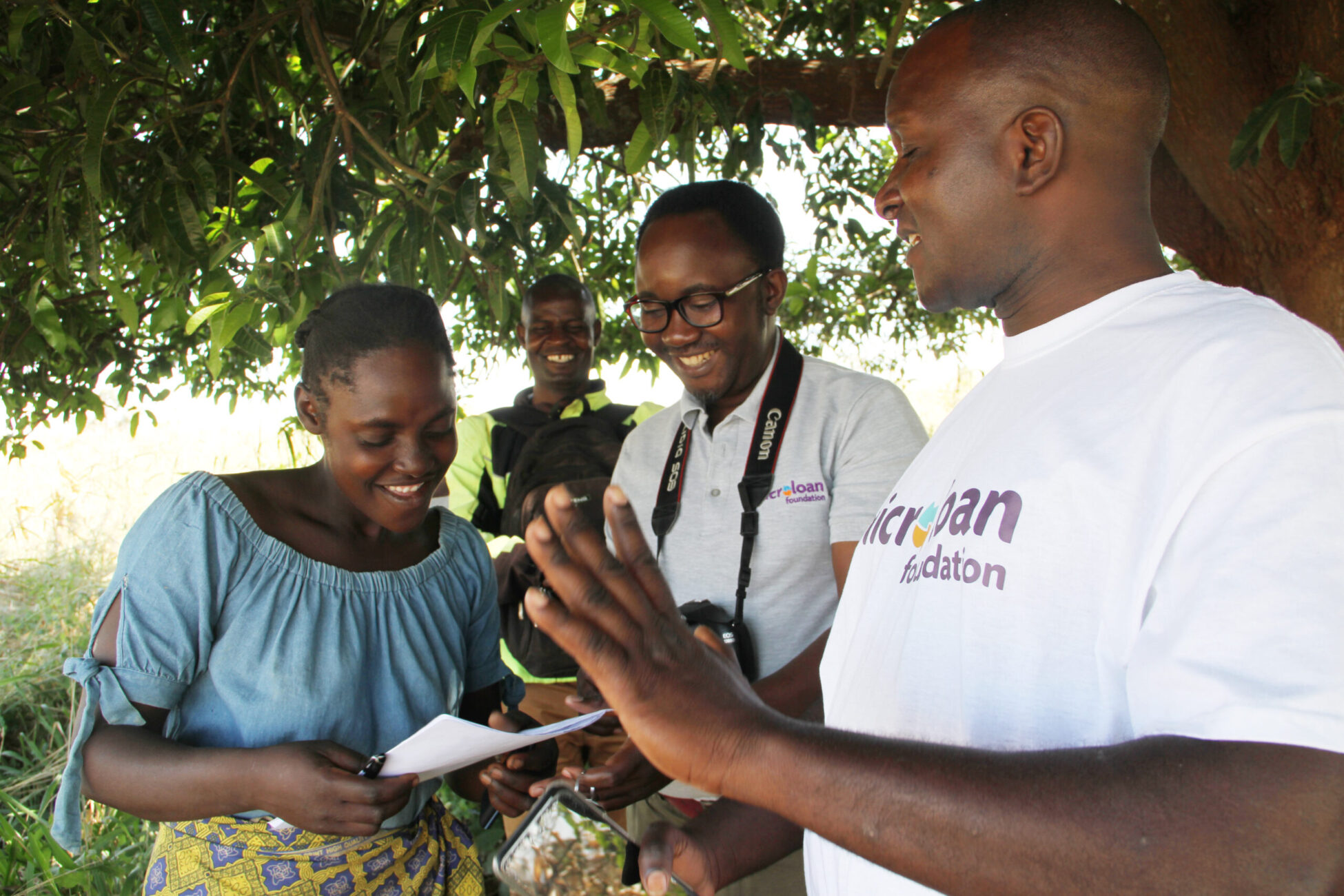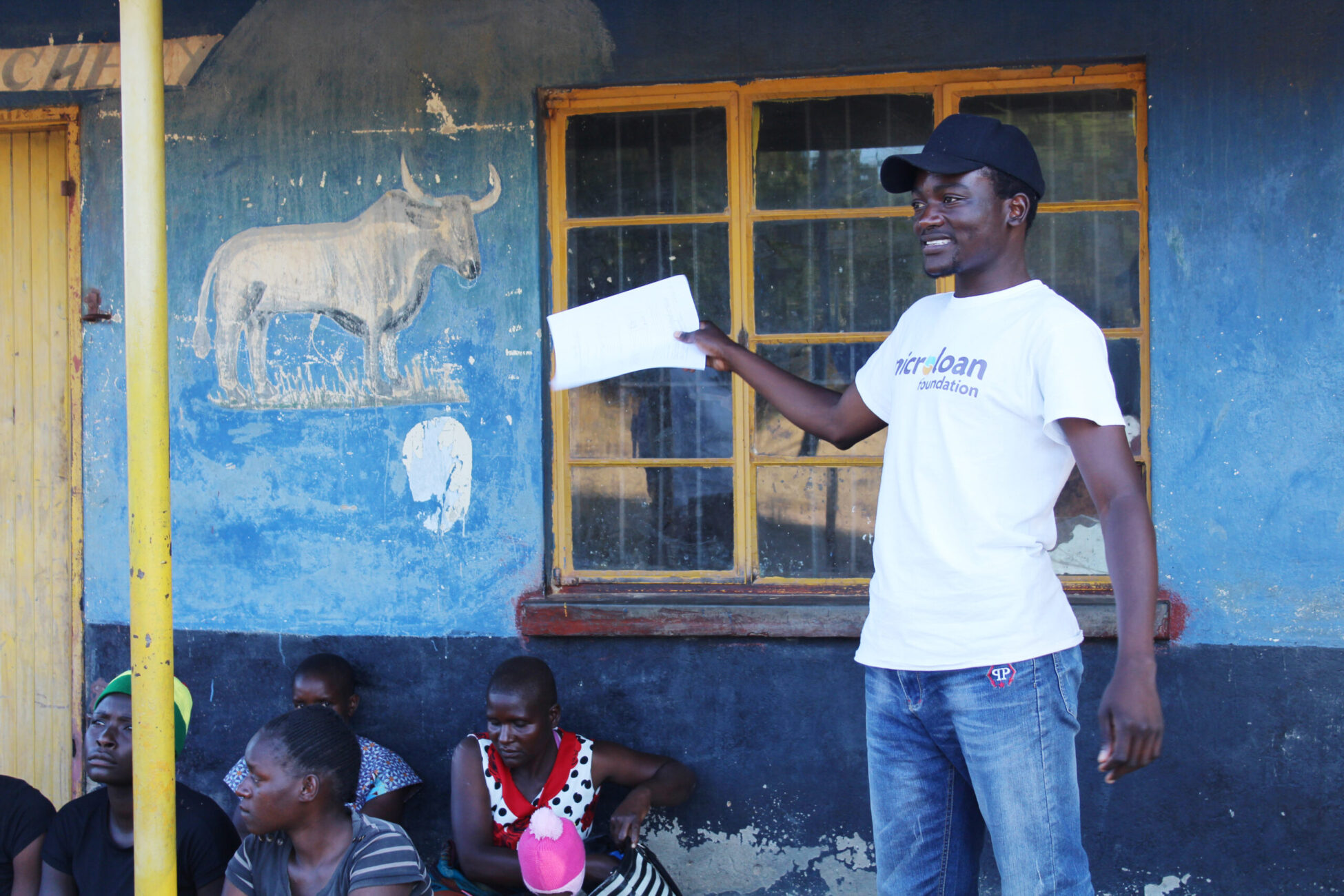
Alice received training and her first loan from MicroLoan Foundation in 2018. She now has a Tilime loan, which is a food security loan to cover the cost of providing agricultural inputs to grow maize and soya. The soya rotates well with maize and improves the quality of the soil to boost the next year’s harvest.
Alice has taken out a 2000 kwacha loan, and has purchased seed, fertiliser and pesticides. Her loan amount was based on a quote from a local agricultural dealer who sells seed and fertiliser. She got a quote based on the size of her land and took out a loan to cover this expense.
Alice thinks MicroLoan Foundation is a very good idea because her village could not access money previously, now a women can access 5,000 kwacha, which is a lot of money. Alice used to only be able to buy one bag of seeds, now she can afford to buy two, plus fertiliser and pesticides if she needs them.
This year Alice’s maize harvest was not as good as she had hoped due to problems with termites and a lack of rain. Thankfully, Alice has produced enough to feed her family for the coming year. She had a bumper harvest of soya which will be sold to create an income and repay her loan. She also plans to hold some of the soya back, as it is a good source of protein and a nutritious compliment to her family’s mainly maize based diet.
Alongside her farming, Alice is a microentrepreneur, selling baked goods and running a small chip shop, which she set up with previous loans from MicroLoan Foundation. She is confident about her products and the growth of her businesses. “My baked goods are very popular, customers complain if I don’t bake. So I know I am better than the competition!” she says.
At the moment Alice has 500 kwacha saved, and she wants to reinvest the money into the chip shop. She knows she will be able to boost her profits if she can travel to Malawi to purchase potatoes at a better price.
Since taking out her first ever loan from MicroLoan Foundation in 2018, Alice has been able to afford to build a house and furnish it with two armchairs, a mattress and sheets. The children hardly ever miss school, and Alice has gained confidence and independence in dealing with finances.
Previously, any money Alice had used to go through her husband but now she can handle her own money and buy what she wants without asking her husband. He is very supportive of her, and they are both grateful that things have changed for their family. “For the future I want my family to stay healthy and I want my children to go to school. One day I would like us to have a big farm with cattle” says Alice.

Alice’s story highlights the challenge of food security around the world. Alice, and the majority of the women MicroLoan Foundation works with, play an essential role in the food system, as farmers, traders, cooks and consumers. Monday 16th October is World Food Day which promotes awareness of hunger and action for the future of food, people and the planet.
To mark World Food Day, MicroLoan Foundation is hosting an exclusive evening reception in London from 18.30 on 16th October. The event will bring together thought leaders and experts in food security, sustainability, agriculture, finance and international development for engaging discussions that delve deep into the heart of global challenges, from climate change and food security to the empowerment of voices often overlooked. Your presence matters and by taking part in the event, you will contribute to creating a positive tangible change.
All funds raised from this event will go towards communities at the receiving end of climate change and food insecurity. The ticket price of £25 can help a woman start a business and build resilience in the face of climate change.